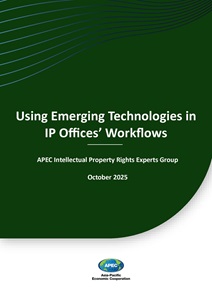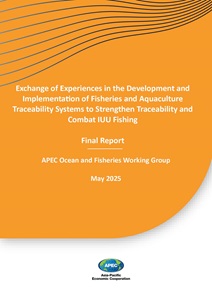
Reports
Using Emerging Technologies in IP Offices’ Workflows
The Asia-Pacific Economic Cooperation (APEC) is a regional economic forum established in 1989 to leverage the growing interdependence of the Asia-Pacific.
The Asia-Pacific Economic Cooperation (APEC) is a regional economic forum established in 1989 to leverage the growing interdependence of the Asia-Pacific.
APEC ensures that goods, services, investment and people move easily across borders. Members facilitate this trade through faster customs procedures at borders; more favorable business climates behind the border; and aligning regulations and standards across the region.
APEC ensures that goods, services, investment and people move easily across borders. Members facilitate this trade through faster customs procedures at borders; more favorable business climates behind the border; and aligning regulations and standards across the region.
APEC works to help all residents of the Asia-Pacific participate in the growing economy.
APEC works to help all residents of the Asia-Pacific participate in the growing economy.
Capacity building projects play an important role in helping translate APEC's goals into reality.
Capacity building projects play an important role in helping translate APEC's goals into reality.

Reports
•May 2025
Download Report
859KB
Published Under
SOM Steering Committee on Economic and Technical Cooperation (SCE), Ocean and Fisheries Working Group (OFWG)
Accessed
620
Pages
36
This report presents the outcomes of the APEC workshop held in December 2024 in Lima, Peru, focused on strengthening traceability systems and combating Illegal, Unreported, and Unregulated (IUU) fishing. It documents the exchange of experiences among APEC economies, highlighting best practices, challenges, and opportunities in both industrial and small-scale fisheries. The report combines findings from a regional survey and the workshop’s collaborative sessions, which led to the development of five key pillars: harmonized standards, verified traceability, integration of enforcement, IT continuity and innovation, and strategic communication. Case studies from economies like Chile; China; Indonesia; and Peru showcase practical solutions, such as mobile apps and AI for traceability. The report concludes with actionable recommendations, a roadmap for future collaboration, and pilot initiatives that aim to scale successful approaches across the region, reinforcing APEC’s role in fostering sustainable fisheries management.

